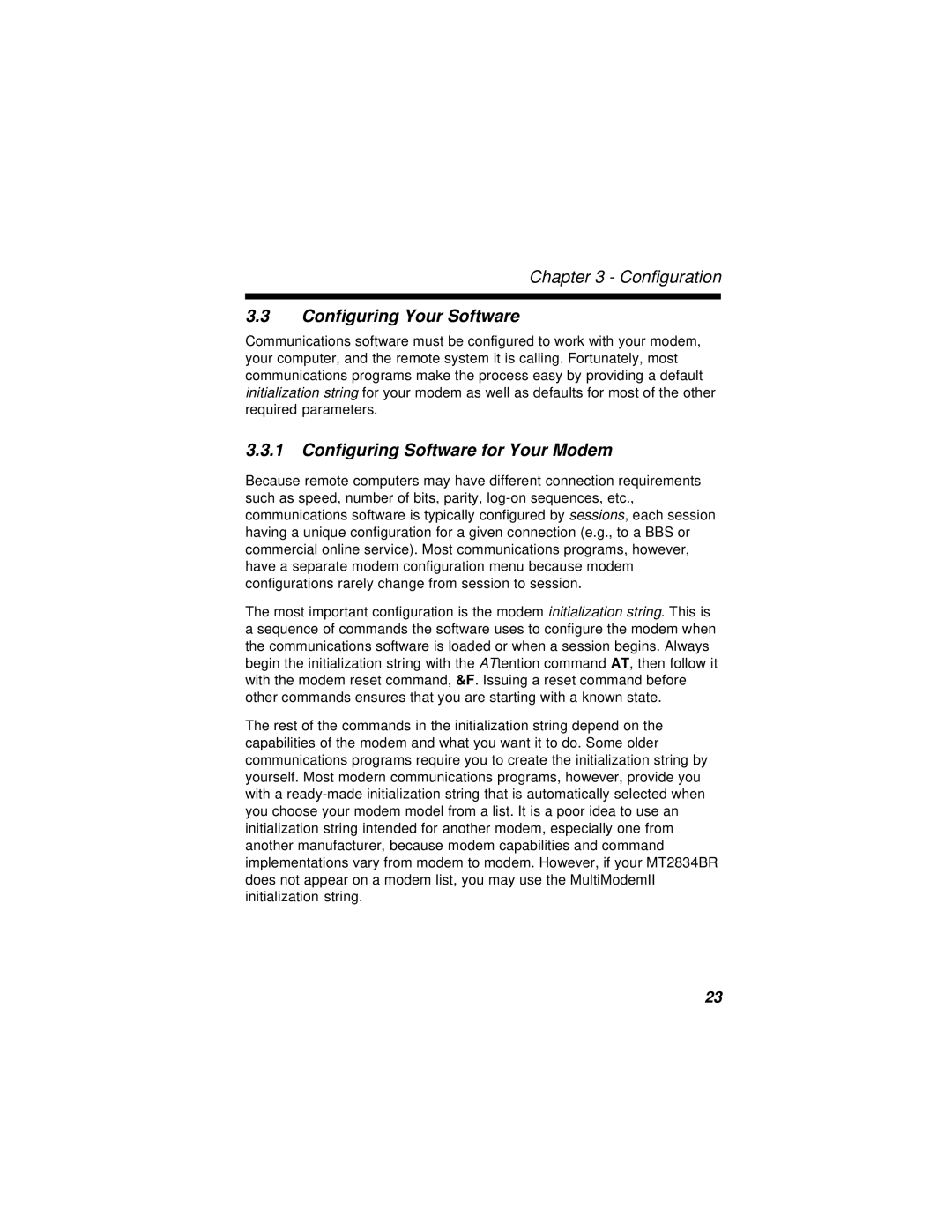Chapter 3 - Configuration
3.3Configuring Your Software
Communications software must be configured to work with your modem, your computer, and the remote system it is calling. Fortunately, most communications programs make the process easy by providing a default initialization string for your modem as well as defaults for most of the other required parameters.
3.3.1Configuring Software for Your Modem
Because remote computers may have different connection requirements such as speed, number of bits, parity,
The most important configuration is the modem initialization string. This is a sequence of commands the software uses to configure the modem when the communications software is loaded or when a session begins. Always begin the initialization string with the ATtention command AT, then follow it with the modem reset command, &F. Issuing a reset command before other commands ensures that you are starting with a known state.
The rest of the commands in the initialization string depend on the capabilities of the modem and what you want it to do. Some older communications programs require you to create the initialization string by yourself. Most modern communications programs, however, provide you with a
23
